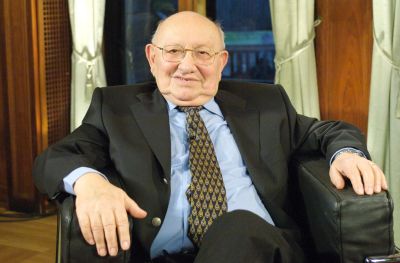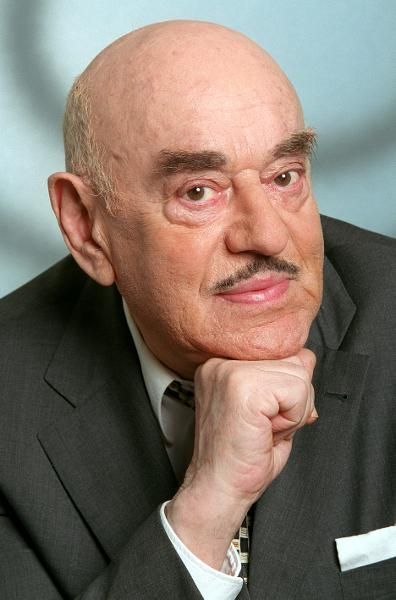Reich-Ranicki, Marcel

On 16. February 2007 Marcel Reich-Ranicki was made an honorary doctor of the Humboldt University, Berlin. He had waited 68 years for this moment. When he applied to study German at the Friedrich Wilhelms University in 1938 he was turned down for political and anti-Semitic reasons. The University's successor was the Humboldt University and in 2007 it found the appropriate words and form of apology.
“I refuse to accept this prize!” These words, as always critical, as always clear and as always hard in judgement, were spoken by Marcel Reich-Ranicki at the award-winning ceremony for the “German Television Prize” in 2008. He was 88 at the time when he spontaneously asked millions of television viewers to forgive him and respect his decision, but the “nonsense we are seeing here this evening” forces him to refuse the award.
Marcel Reich-Ranicki was 92 years old when he spoke before the German parliament on the 27. January 2012 as a contemporary witness on the memorial day for Holocaust victims. Here too he was critical, literary, clear and unmistakable. However he did not present himself as a contemporary witness but rather as a survivor of the Warsaw ghetto. In his long speech he described a single day in the ghetto. The day when orders were given for “resettlement” from the ghetto. His speech in which he described the atmosphere and inconceivable cruelty of the SS in the Warsaw ghetto, was terrifyingly precise, simple, transparent, sharp and painful. Marcel Reich-Ranicki concluded his speech with the following words: “What people called the ‘resettlement’ of the Jews was nothing more than an expulsion – an expulsion from Warsaw. It had only one aim, it had only one purpose: death”.
A shadow hangs over the person of Marcel Reich-Ranicki as a result of his work in the Ministry of Public Security (MBP) and his activities in London. At the start of 1948 he was sent on a twin mission to the British capital under the Polish-sounding name of Ranicki. He was loaned out to the Polish foreign ministry as the official Vice-Consul in London. Later he became the Consul and for a time was the chief of the General Council, the unofficial head of espionage. The aim was to spy on and infiltrate immigrants in and around the non-Communist Polish exile government. At the same time as many immigrants as possible should be persuaded to return to Poland. Under his leadership a file was set up containing information on over 2000 immigrants. Very little information on this time can be found in his biography. Marcel Reich-Ranicki always maintained that he regarded his “work for the Secret Service as irrelevant and superfluous”.
Adam Gusowski, December 2013
Sources:
“Mein Leben” Marcel Reich-Ranicki
“Wolke und Weide” Gerhard Gnauck
Conversation with Gerhard Gnauck
Commentary on Marcel Reich-Ranicki for Funkhaus Europa by Piotr Olszowka
ZDF archive
German Parliament text archive
ZDF picture service
You can find the online exhibition on “the Pope of German Literature” Marcel Reich-Ranicki with a text by his biographer Gerhard Gnauck here.






